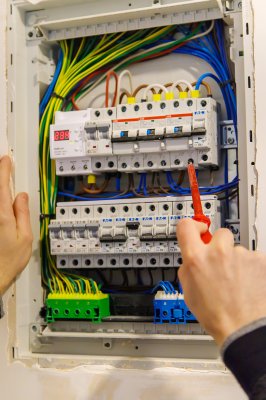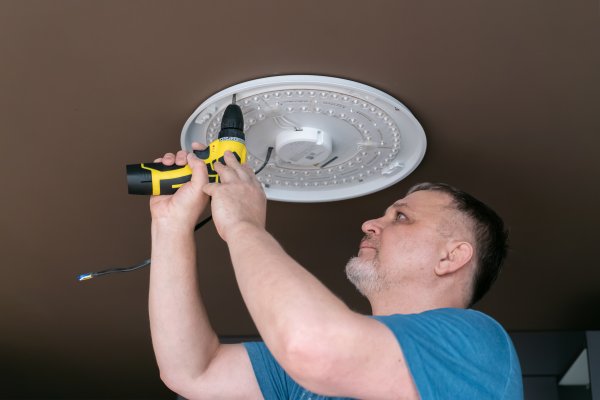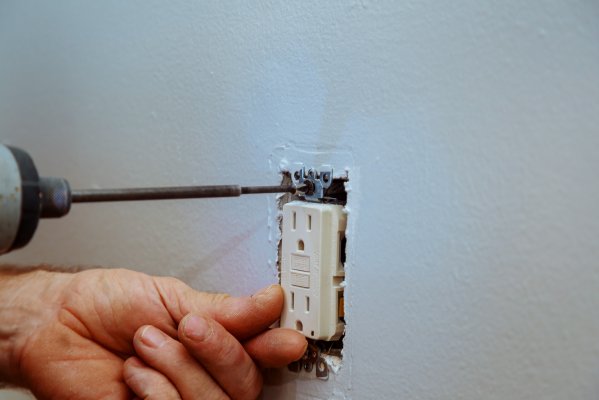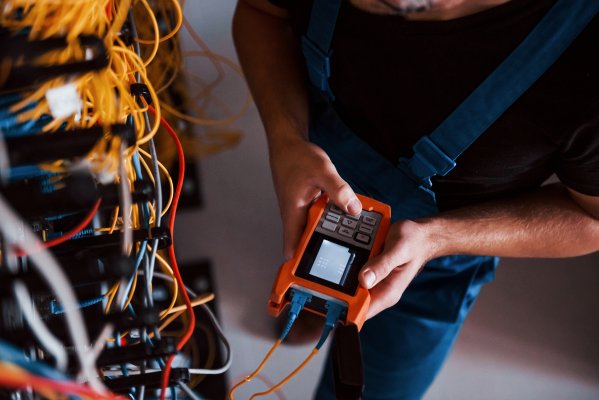Oregon Electrical Code Basics
Oregon's electrical code is administered by the Oregon Building Codes Division and is based on the National Electrical Code (NEC) with Oregon-specific amendments. The current Oregon Electrical Specialty Code (OESC) is updated every three years to align with new NEC editions.
Key Components of Oregon Electrical Code
Oregon-Specific Amendments
While Oregon largely follows the NEC, several state-specific amendments address local conditions:
- Seismic Requirements: Additional bracing and securing requirements for electrical equipment in seismic zones
- Outdoor Installation Standards: Modified requirements for wet and damp locations due to Oregon's climate
- Energy Efficiency: Enhanced requirements for energy-efficient electrical systems
- Renewable Energy: Specific provisions for solar panel and battery storage installations
When You Need Electrical Permits in Oregon
Understanding when permits are required can save you time, money, and potential legal issues. Oregon's permit requirements are designed to ensure electrical work meets safety standards and is properly inspected.
Work That REQUIRES Permits
Work That DOESN'T Require Permits
Homeowner vs. Professional Electrical Work
Oregon law allows homeowners to perform electrical work on their own single-family residence, but this doesn't mean all electrical work is suitable for DIY projects. Understanding the limitations and requirements is crucial for safety and legal compliance.
What Homeowners Can Legally Do
When to Hire a Licensed Electrician
Common Oregon Electrical Code Violations
Understanding common code violations can help you avoid costly mistakes and ensure your electrical work passes inspection. These violations are frequently found during inspections and can delay project completion.
Top 5 Most Common Violations
- Improper GFCI Protection: Missing GFCI protection in bathrooms, kitchens, garages, and outdoor areas
- Insufficient Outlet Spacing: Outlets spaced more than 12 feet apart along walls
- Improper Wire Sizing: Using wire gauge that's too small for the circuit amperage
- Missing Arc Fault Protection: No AFCI protection in bedrooms and other required areas
- Improper Junction Box Installation: Junction boxes not properly secured or accessible
The Oregon Electrical Inspection Process
Understanding the inspection process helps ensure your project moves smoothly from start to finish. Oregon's inspection requirements are designed to verify that electrical work meets safety standards and code requirements.
Types of Electrical Inspections
- Rough-In Inspection: After wiring is installed but before walls are closed up
- Final Inspection: After all electrical work is complete
- Service Inspection: For new services or service upgrades
Oregon Electrical Safety Requirements
Safety is the primary purpose of electrical codes. Oregon's safety requirements are designed to protect people and property from electrical hazards.
GFCI Protection Required In
- Bathrooms: All outlets
- Kitchens: All countertop outlets
- Garages: All outlets
- Unfinished Basements: All outlets
- Crawl Spaces: All outlets
- Outdoors: All outlets
- Laundry Areas: Outlets within 6 feet of sinks
- Pool/Spa Areas: All related electrical equipment
AFCI Protection Required For
- Bedrooms: All circuits serving bedroom areas
- Living Areas: Family rooms, dining rooms, libraries, dens
- Hallways: Corridors and similar areas
- Closets: Storage areas
- Recreation Rooms: Finished basement areas
Frequently Asked Questions
What electrical work requires permits in Oregon?
In Oregon, permits are required for new electrical installations, panel upgrades, adding new circuits, major rewiring, and any work that involves the main electrical service. Minor repairs and replacements of existing fixtures typically don't require permits.
Can homeowners do their own electrical work in Oregon?
Oregon allows homeowners to perform electrical work on their own single-family residence, but permits and inspections are still required for most work. However, many jurisdictions require licensed electricians for safety reasons.
How much do electrical permits cost in Oregon?
Electrical permit costs in Oregon vary by jurisdiction and project scope, typically ranging from $50-$200 for residential work. Complex projects like service upgrades may cost $200-$500 in permit fees.
What happens if I do electrical work without a permit?
Unpermitted electrical work can result in fines, insurance claim denials, safety hazards, and complications when selling your home. You may be required to tear out work and redo it to code.
Remember: When in doubt about Oregon electrical codes, always consult with a licensed electrician. Your safety is worth the investment.






